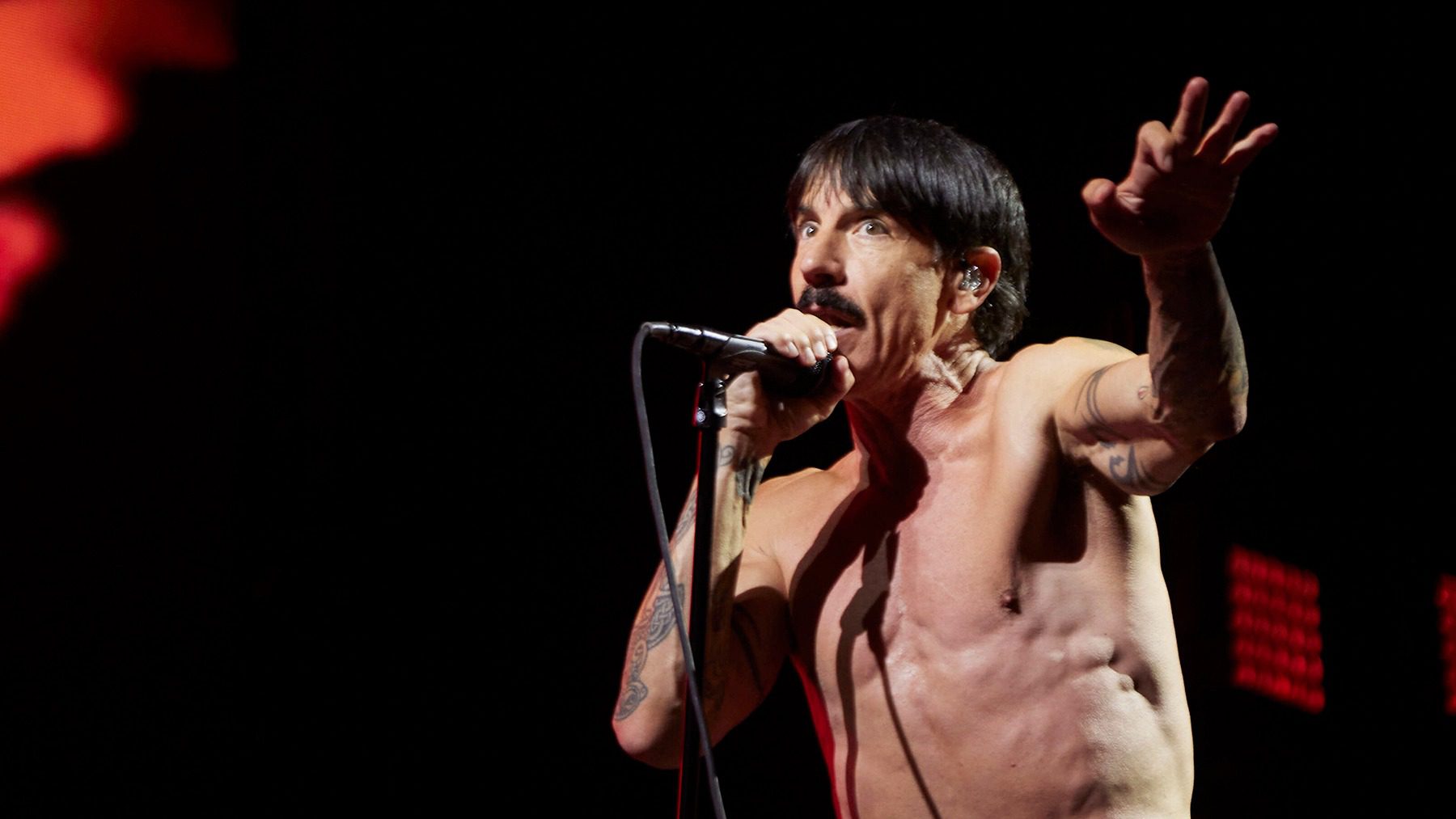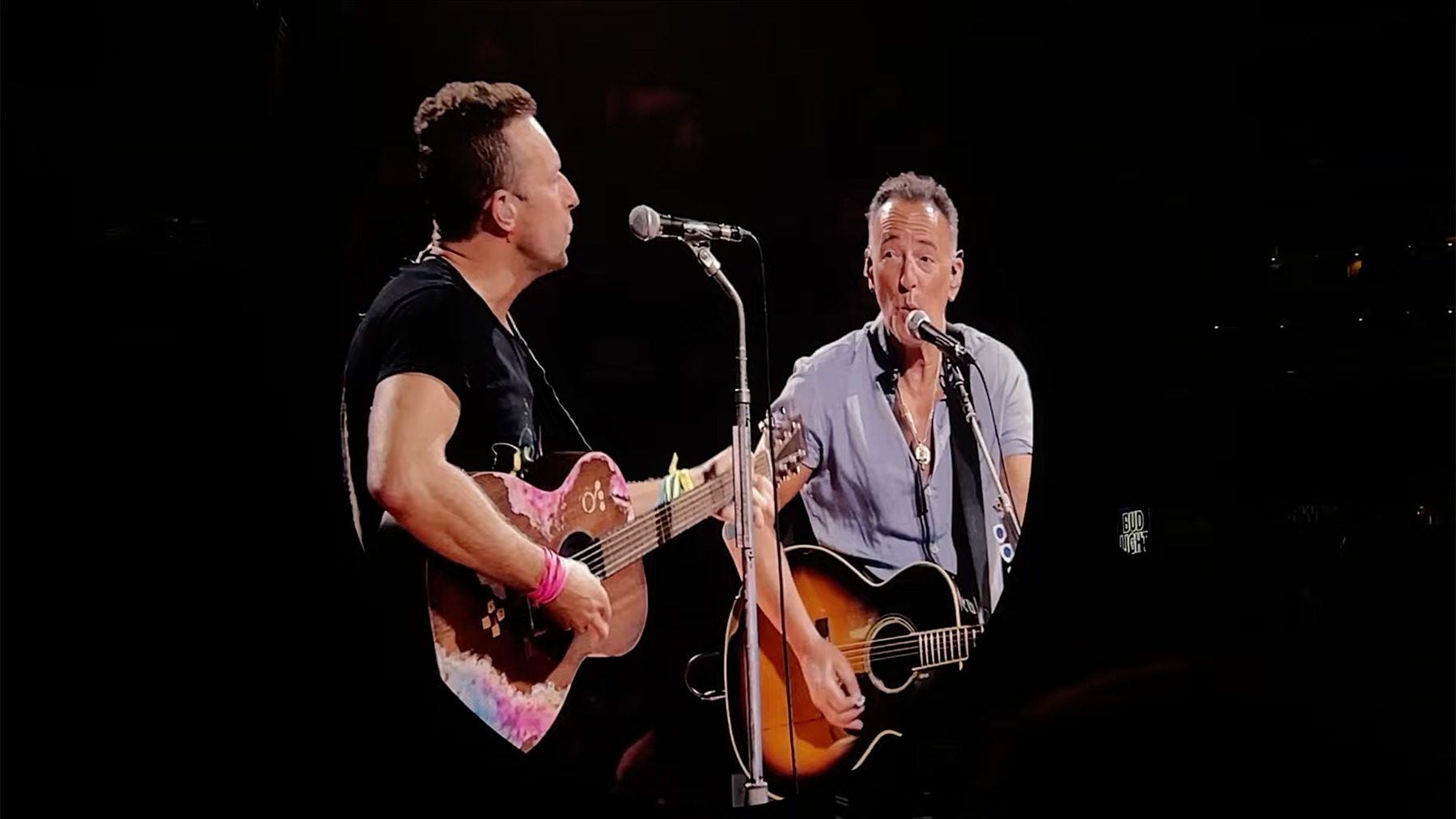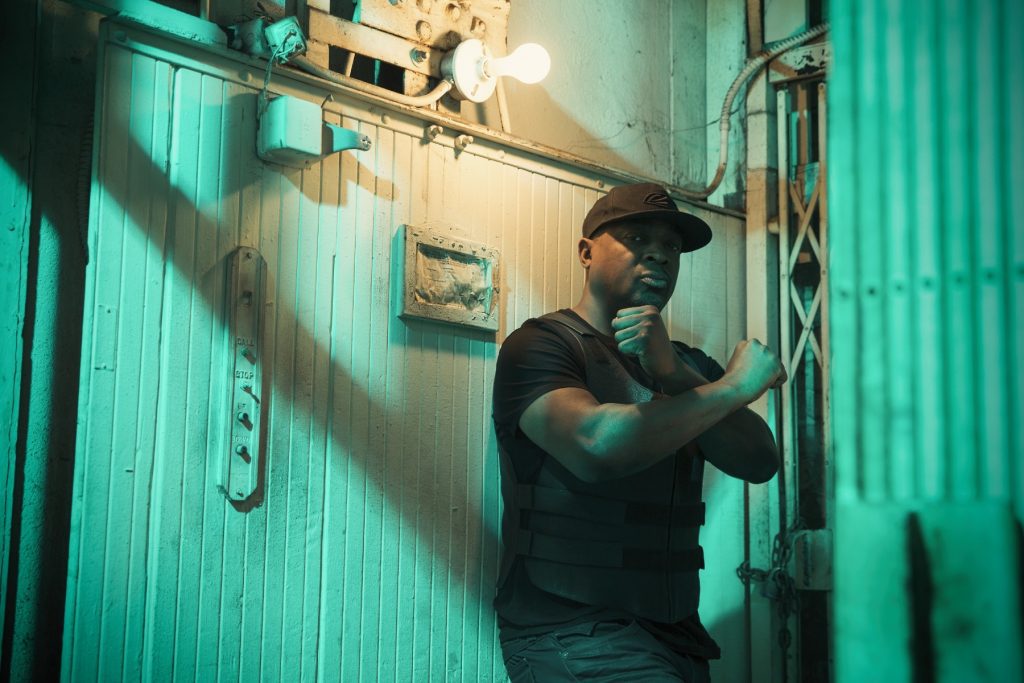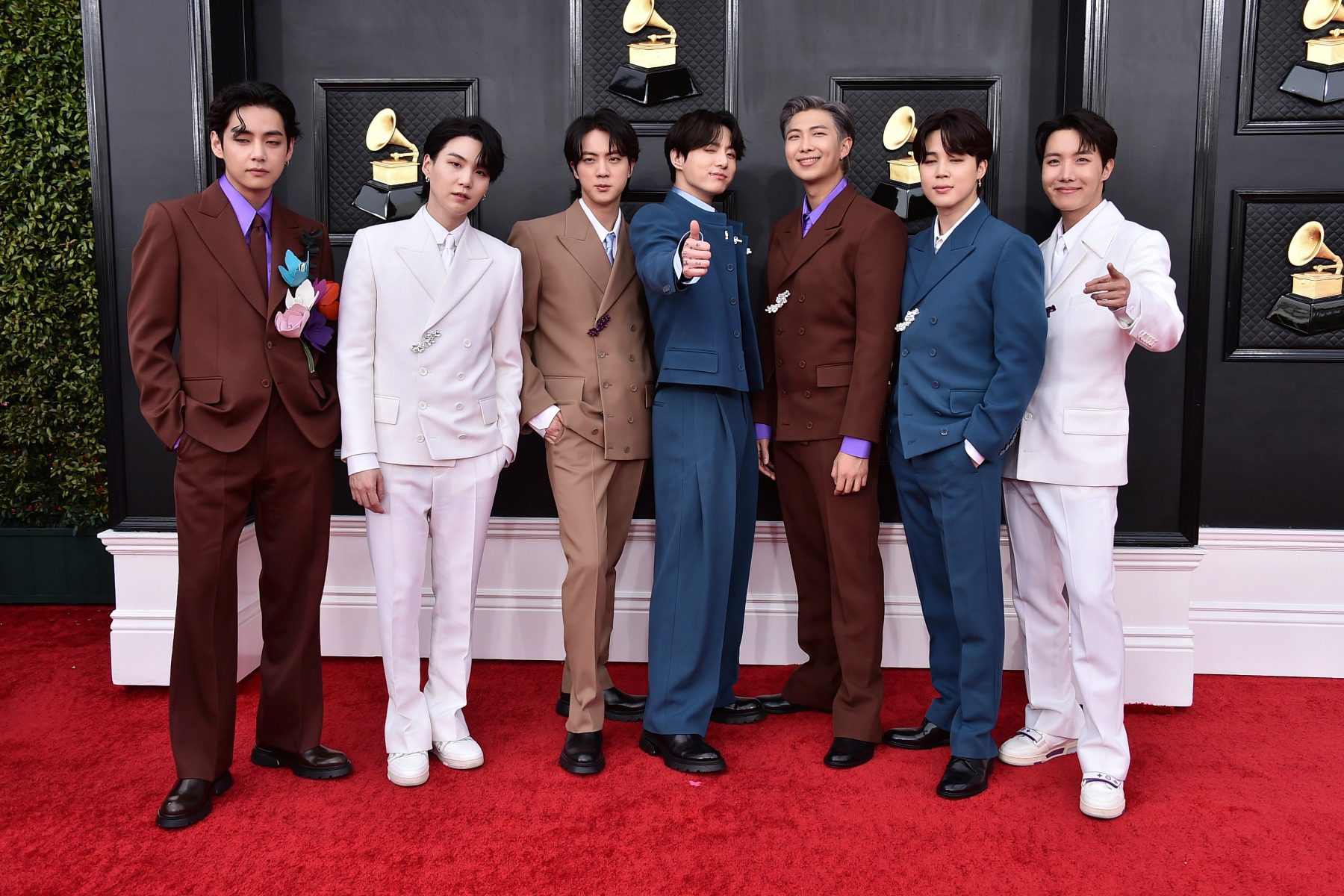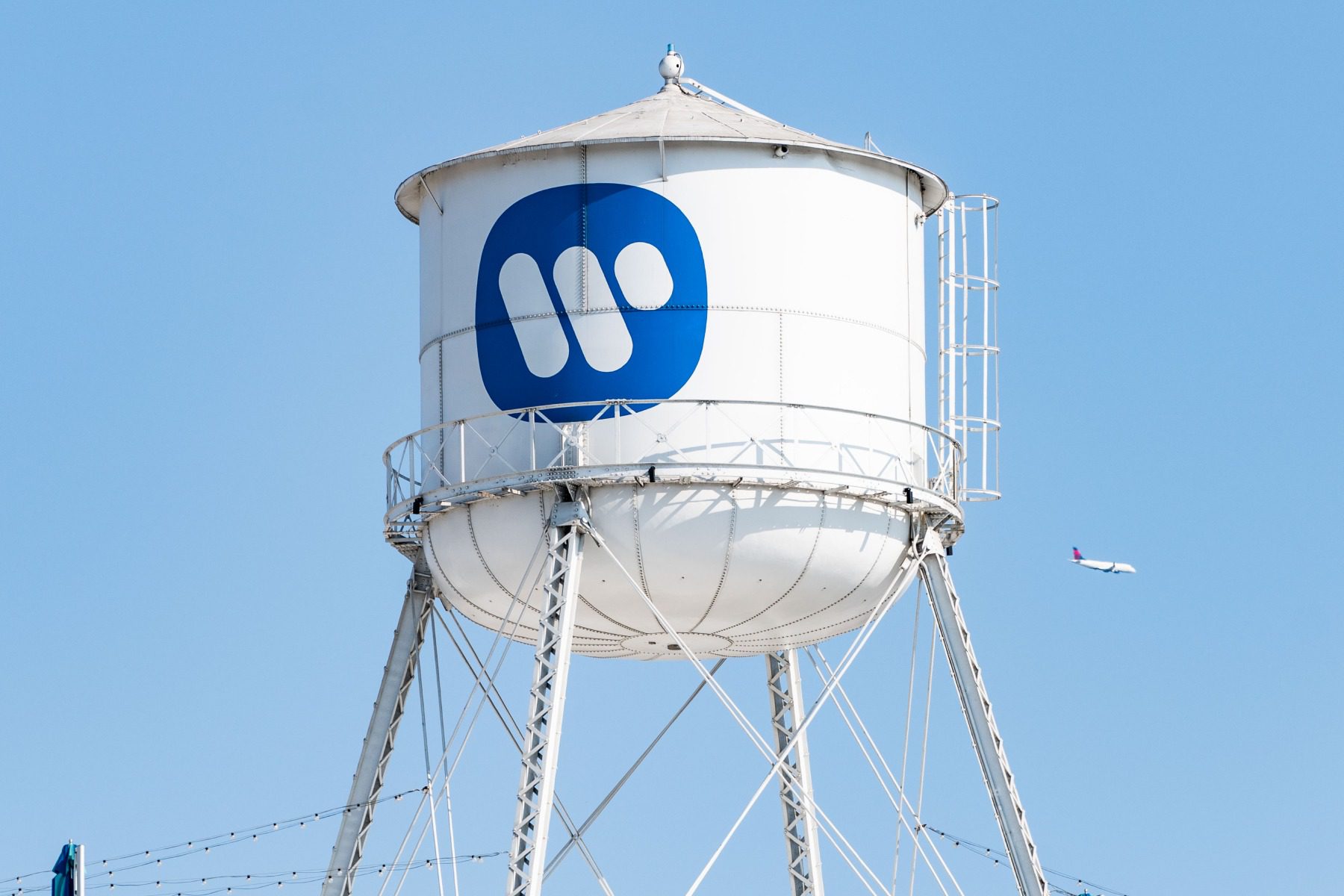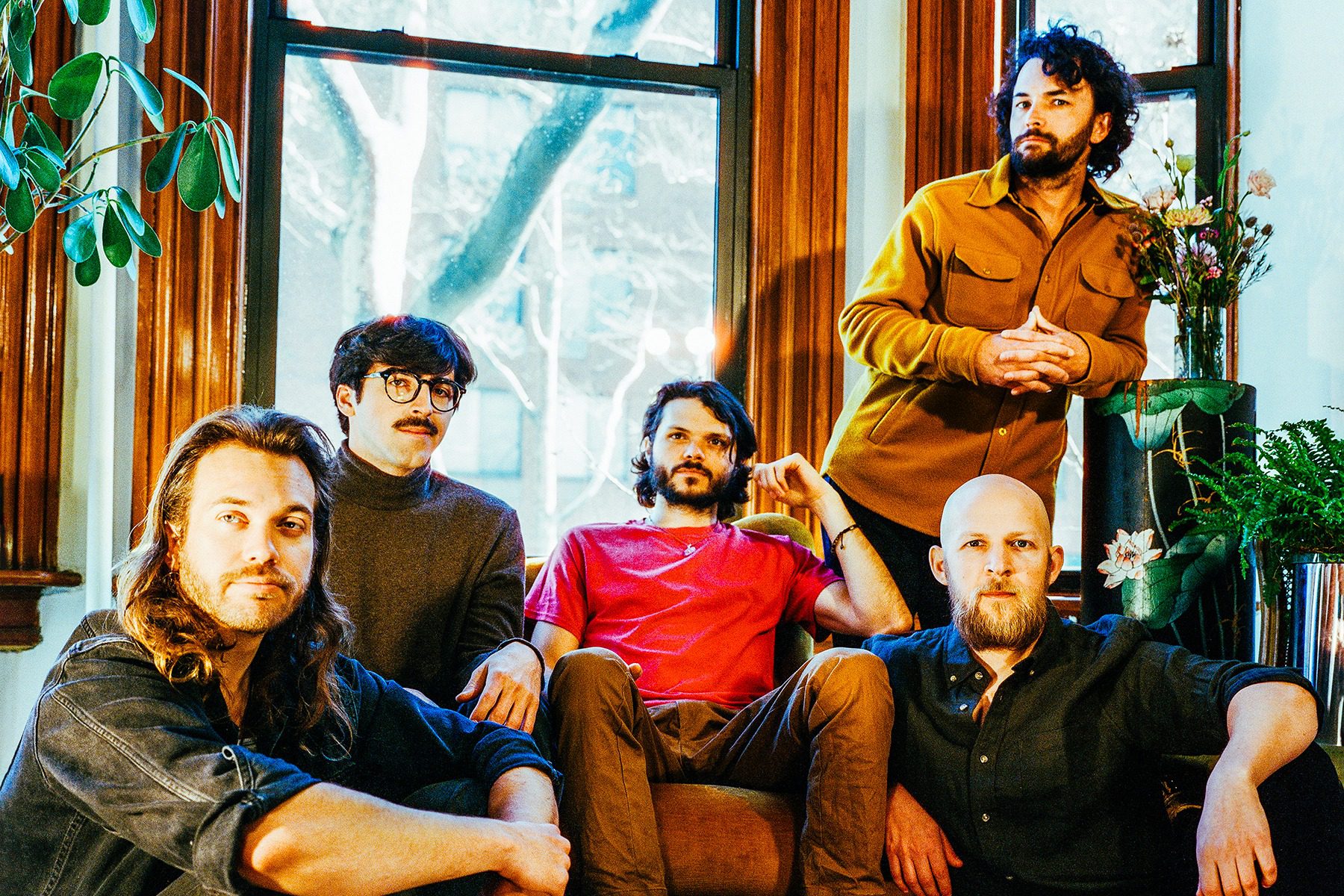
Goose Could Be Your Next Favorite Jam Band — If They’re Even a Jam Band
It’s a mortifying experience to have to admit to the members of the band Goose, in the interests of full disclosure, that you have not yet seen them live. That’s because Goose is, by most accounts, the most talked about jam band in the country right now. How can one truly understand a jam band if they haven’t been in that crowd, riding an improvisational wave of sound to some unknown peak that will never be replicated in exactly the same way? Sure, you can dig through concert clips on YouTube. Or pore over the high-quality live recordings that Goose upload to Bandcamp and Nugs, often releasing full shows just days after they happen. But, c’mon — that’s no substitute for the real thing.
Luckily, Goose is maybe the one jam band out there where this shortcoming can be at least somewhat tolerated. As much as the Connecticut five-piece are a top-notch live act with an ever-growing draw — they just played their first arena show in their home state and have sold-out gigs at major venues like Colorado’s Red Rocks and New York City’s Radio City Music Hall on the horizon — Goose love the recording studio as much as the stage. Their new album, Dripfield, out June 24, is their third and most assured play at establishing themselves as a compelling studio act.
blogherads.adq.push(function () {
blogherads
.defineSlot( ‘medrec’, ‘gpt-dsk-tab-article-inbody1-uid0’ )
.setTargeting( ‘pos’, [“mid-article”,”mid”,”in-article1″,”mid-article1″] )
.setSubAdUnitPath(“music//article//inbody1”)
.addSize([[300,250],[620,350],[2,2],[3,3],[2,4],[4,2],[640,250]])
;
});
“There’s always been two sides,” says Rick Mitarotonda, Goose’s lead guitarist and principal singer-songwriter. “When I think back to the beginning of the band, I think about two things: I think about us tracking [2016’s] Moon Cabin and finding out how we play together in the studio — that’s where we really started to establish that language together. And then there’s the other side where we were playing bar gigs. That’s where we got our legs. You really feel people’s energy when they’re right in front of you.”
Drummer Ben Atkind adds, “When you get in the studio, you have the cans on, you’re looking around and hearing everything exactly how you want it — there’s this feeling. It’s a rush and it’s exciting because everyone’s focused on the one thing, the music, that’s all that matters in this moment. It’s not about the crowd and people dancing. And everyone knows that, if we let ourselves get into the right headspace, we can make some magic.”
Carefully crafted studio albums by jam bands obviously aren’t novel, but Goose’s interest speaks to their long-term ambitions and aesthetic concerns. While many of the members grew up going to Phish and Umphrey’s McGee shows, and looked up to improvisational jazz wizards like John Scofield and Pat Metheny, their songwriting feels more indebted to bits of classic rock and contemporary indie rock like Fleet Foxes, Bon Iver, and Vampire Weekend. (The latter are avowed fans, tapping Goose to make a 20-minute-and 21-second version of their Father of the Bride song “2021.”) Atkind — who doesn’t come from a jam background — notes that when he first started playing with the pre-Goose group Vasudo, his homework was watching both Phish’s Bittersweet Hotel and the Band’s The Last Waltz. Mitarotonda credits his early love of emo and punk bands with instilling in him an appreciation for well-written songs and memorable hooks.
That mix of influences resonates throughout Dripfield, which was produced by D. James Goodwin, who is well grounded in the indie world. (Mitarotonda particularly admired his work with Bonny Light Horseman, though Goodwin, it should be said, has also produced Bob Weir.) The result is an album where bits of crunchy funk (“Hot Tea,” “Arrow”) and heady noodling (“726”) mingle with windswept indie-folk and country-rock (“The Whales,” “Honeybee”). Most striking is the opening trio — “Borne,” “Hungersite,” and “Dripfield” — where all these styles collide, the guitar solos, harmonies, and sing-along choruses providing both sweet headphone ear candy and the foundation for a perfect live peak.
“Clearly, the live thing is the main event at this point,” Mitarotonda says. “But we love recording and want to keep exploring possibilities there. My hope is that, now, it’ll be a little bit more balanced. We have no intention of changing the fact that we are a live band, but we’d all love to to see the albums become something that they don’t typically become for jam bands.”
blogherads.adq.push(function () {
blogherads
.defineSlot( ‘medrec’, ‘gpt-dsk-tab-article-inbody2-uid1’ )
.setTargeting( ‘pos’, [“mid-article2″,”mid”,”in-article2″,”mid-article”] )
.setSubAdUnitPath(“music//article//inbody2”)
.addSize([[300,250],[300,251],[620,350],[2,4],[4,2],[3,3],[2,2]])
.setLazyLoadMultiplier(2)
;
});
A day before Goose kicked off their lengthy spring and summer tour, Mitarotonda, Atkind, and multi-instrumentalist (and occasional singer-songwriter) Peter Anspach spoke with IndieLand about making Dripfield, the indie rock/jam band nexus, and what the future may look like for the group that’s rightfully being dubbed America’s next great jam band, even if they’re not just a jam band.
Is there a particular moment or song where Dripfield really began to take shape for you?
Rick Mitarotonda: Some of these songs are really old. It’s sort of a cumulative thing in a lot of ways, which ties in to the concept or theme behind the album. There are different layers to what “dripfield” means, to me at least. It can mean whatever anyone wants. But the album cover has this explosive quality, and that’s what it felt like: a snapshot of the band in real time that has been a long time coming.
You recorded your last record, 2021’s Shenanigans Nite Club, over several years, but made this in a studio over a set amount of time. What was that like?
Peter Anspach: We had never worked with a producer before. Shout-out to D. James Goodwin. He brought a lot of different influences that we had not really worked with before, and ended up interpreting a lot of our songs differently than we had planned or prepared. It was a fun process, because you come in with an open mind every single day, and a song that you maybe have been playing for seven years all of a sudden just sounds so new and exciting.
How much improvising do you do in the studio?
Anspach: It was a different type of improvising. We were working on “Hot Tea,” and Goodwin was like, “Just play this rhythm for the seven-minute song.” And all of a sudden we were improvising within the song in different ways, playing different parts that we wouldn’t have ever thought to play. We were also experimenting with different instruments, and in that way there’s a lot of improvisation going on. So it’s different than we’re all jamming onstage. There’s a few jammier sections of the record, but a lot of it was more improvisation within the song form and experimentation.
You recorded Dripfield in March 2021, after a pandemic year where you played some shows but not many. Where were you emotionally and creatively as you went into the studio?
Mitarotonda: Personally, I’d been so stifled by Shenanigans for so many years, just trying to get it done. Even before we were done with that record, it was like we were gearing up [for Dripfield]. We had all these other songs that we wanted to record —all the songs that we play live. We wanted to record them, but was it worth putting a bunch of energy into recording all these existing songs? Where do you draw that line? And how do they all live together? There were a ton of questions, a ton of possibilities, and it was pretty tough to weed through it. Ultimately, though, it was extremely freeing. I was coming from a place of being very restricted creatively, due to my own hole I’d dug myself into, and then this process just felt like a big weight was lifted.
blogherads.adq.push(function () {
blogherads
.defineSlot( ‘medrec’, ‘gpt-dsk-tab-inbodyX-uid2’ )
.setTargeting( ‘pos’, [“mid”,”mid-articleX”,”in-articleX”,”mid-article”] )
.setSubAdUnitPath(“music//article//inbodyX”)
.addSize([[300,250],[300,251],[3,3],[620,350],[2,2]])
.setLazyLoadMultiplier(2)
;
});
Ben Atkind: It was really refreshing the way we did it. It felt like we were all working together as a unit really well, and were pushing each other the whole time. And to have Goodwin there taking us in different directions and getting us out of our comfort zones, it was exciting.
Of the songs that you had been playing live for a while, how did you decide which to record for Dripfield?
Anspach: We outlined what we thought was going to be the record and then started bouncing the songs back and forth with Dan. He had some that stuck out to him, and then we came together and finalized the 10 that we were going to attack. There was a lot of trust in that process, because there were a lot of songs we thought could be on the record that weren’t.
How do you think having those live versions acting as the foundation influenced the way you went about remaking them in the studio?
Atkind: We wanted to let the songs mature and grow. Live, it’s really easy to get stuck in like, “It’s ‘Hot Tea,’ it’s a rager, it’s a dance party!” And there’s a lot of subtleties that can go out the window in that situation. So it was cool getting to see these songs grow up a little bit in some ways. Like with “Hot Tea,” Dan put the image in our head of, you’re in a convertible with the top down, cruising by a boardwalk on a beautiful sunny day, and you’re just relaxed, no rush in the world — get into that mentality for that one. These little tweaks would take them to a different place.
The album opens with three new songs that you only started playing live this year. What can you tell me about those?
Mitarotonda: We had done a ton of pre-production, talked about all these songs, and it was like the last two or three weeks before going [into the studio] that we kicked around these other demos and sent them to Dan. He was excited by them, and thought we should start with something new because that would be a good way to set the tone of us reinventing, or being as open as we could. So that when it came time to play our other songs that we have all of our muscle memory on, we won’t be freaking out when he’s like, “All right, let’s do it completely different” [laughs].
blogherads.adq.push(function () {
blogherads
.defineSlot( ‘medrec’, ‘gpt-dsk-tab-inbodyX-uid3’ )
.setTargeting( ‘pos’, [“mid”,”mid-articleX”,”in-articleX”,”mid-article”] )
.setSubAdUnitPath(“music//article//inbodyX”)
.addSize([[300,250],[300,251],[3,3],[620,350],[2,2]])
.setLazyLoadMultiplier(2)
;
});
Do you see the songs on Dripfield as the definitive versions, or just another moment in their existence?
Anspach: It’s just a moment. We may play these songs like the album version, or we may play them like how we’ve been playing them live. I mean, “Slow Ready” is just another way to play “So Ready” — it’s a reinterpretation of that song. And even the album version of that is different than the live version. It’s just been exciting to continuously evolve the music. These songs obviously mean a lot to us, and songwriting in general is such a big part of this band.
Mitarotonda: When the song starts to feel like it doesn’t have as much juice as maybe it once did, or it doesn’t feel alive, then it’s like, “All right, put it back on the drawing board.” The idea is to keep it fun for us, keep it engaging. Because when you play songs a million times, it really is easy to lose engagement. That’s something that requires a lot of maintenance in different ways. Our gravitation is towards reinventing and changing things so that it feels more exciting.
Are there any moments on Dripfield that feel like something Goose wasn’t ready to do before making this album?
Mitarotonda: All of it [laughs]. One of my friends heard a couple tracks and was like, “Wow, it sounds nothing like you guys — it sounds really good!” [laughs]. Which is sort of true, you know? It’s just a whole different language that opened up to us, by way of Dan. And we were looking for that. A big part of the process was like, who’s going to unlock that door for us? Who’s going to teach us this language that we’re interested in but don’t have the experience with? We’ve done other things, we’ve opened up other languages for ourselves. But this is a new one — I don’t know what you’d call it, the “indie”… I don’t know, terms are funny. But it was a completely different language that we were seeking a crash course in.
What’s drawn you to these indie rock artists, and how do you think they’ve blended with your jam backgrounds?
Mitarotonda: It’s just a totally different pursuit than the other stuff. The creativity and the inventive qualities of that music, the way those types of people are searching for new ground, has been really compelling for the past five to 10 years.
Big picture, what it comes down to is transportation. Fleet Foxes — that first album and the Sun Giant EP — is this crazy, medieval world that they created. The artwork, everything about the music, the melodies, the production, the harmony, the instrumentation — all the choices worked together to create this world. You could live in it; and I just lived in it for a for a year maybe. And when I really think about it, that’s what I’ve always loved about music. Phish was the same thing when I was in high school — like, it’s these dudes in a barn in Vermont doing all this cool improvisation and songs. It’s a whole world and you can live in it. That’s the most compelling thing about about music.
blogherads.adq.push(function () {
blogherads
.defineSlot( ‘medrec’, ‘gpt-dsk-tab-inbodyX-uid4’ )
.setTargeting( ‘pos’, [“mid”,”mid-articleX”,”in-articleX”,”mid-article”] )
.setSubAdUnitPath(“music//article//inbodyX”)
.addSize([[300,250],[300,251],[3,3],[620,350],[2,2]])
.setLazyLoadMultiplier(2)
;
});
More broadly, do you think these two worlds are starting to blend more, even beyond what Goose is doing?
Anspach: In conversations with the Vampire Weeknd guys and the Dawes guys, they kind of want to jam a little bit. And it’s like, “Oh wow, you guys want to jam? We want to make cool indie records” [laughs]. It’s like everybody wants to be doing the opposite. And I hope that continues to happen, because the blurred lines ultimately make for what could be more interesting and creative music.
Having grown up in the jam band world, what’s it been like watching Goose fans start to build their own subculture around the group?
Mitarotonda: It doesn’t feel real to me for some reason [laughs]. I remember I knew about the band Twiddle before they became popular in this scene, because friends of mine would go to their small festival, or some of their shows when they would play locally. And then they blew up and I was like, “Whoa! They sold out two nights at the Capitol Theatre!” … On a personal level, people connecting with what you’re doing, that feels cool. People are just stoked on what we’re putting out there, whatever it may be. It’s also very humbling. It’s wild that they make the choice to spend the money that they spend all their time working for — people don’t have a lot of money, and they spend their money coming to shows.
Goose has been the subject of some pretty heated discourse, especially in comparison to Phish. Is that frustrating, or just something that comes with the territory?
Atkind: At this point, I take everything with a grain of salt and I think most of it is kind of funny. But at the same time, I’m used to it. It doesn’t frustrate me. The comparisons, people trolling each other, and just the attitude that jam band fans have can be a little unfortunate sometimes. Because you have these fans that are so into the music and will come on tour and support us, and that side is amazing. But then people get defensive for their bands, and people are not good at comparing and critiquing without getting offended. People just start these fights and it’s kind of sad. But at the same time, I look at it like, it’s the internet and the internet’s going to internet and I’m not going to stress about it. But it would be cooler to see people be a little bit kinder to each other.
Obviously there’s a lot to relish about this particular moment for Goose, but as you look down the road, are there any artists whose careers you really look to for inspiration?
Mitarotonda: I had a moment this past winter where I was thinking about the Dead, and there’s a lot in terms of their career that was unfortunate, just on personal levels with health and things like that. But there’s a lot of lore surrounding that Cornell ’77 show, which people always talk about as being one of the best shows. I’d listened to a lot of other shows from that tour, but never really listened to that show in particular, and I had this conception that it was just these monster jams — that it was all about the jams. And I dug into it this past winter, and was sort of delighted to find that it wasn’t. There are great jams, but they weren’t super long or crazy. They were just a tight band doing something different, being original, and crushing songs. That was really inspiring. And I thought that would be a cool thing for us to work towards in our own way, in our own voice.
blogherads.adq.push(function () {
blogherads
.defineSlot( ‘medrec’, ‘gpt-dsk-tab-inbodyX-uid5’ )
.setTargeting( ‘pos’, [“mid”,”mid-articleX”,”in-articleX”,”mid-article”] )
.setSubAdUnitPath(“music//article//inbodyX”)
.addSize([[300,250],[300,251],[3,3],[620,350],[2,2]])
.setLazyLoadMultiplier(2)
;
});
That would be my answer for the for the live side. And then for the the other side, I mean, it’s incredibly lofty — talk about things to strive for, not things that we think we’re on the level of — but a band like Radiohead, who create a platform where their fans not only don’t get pissed when they put out a record that’s completely different than the last one, they celebrate it. They look for it, they’re hungry for it. And if it’s not different and inventive enough than the last one, then they’re disappointed. The process of reinvention, seeking, and searching for new ground that becomes the thing that people are fans of — I think that’s the coolest shit ever.
This conversation has been edited for length and clarity.
